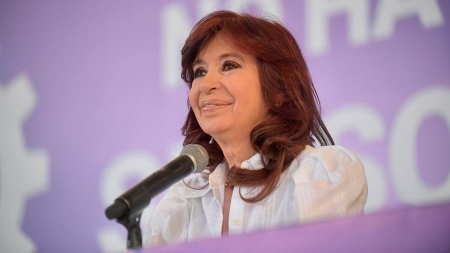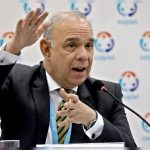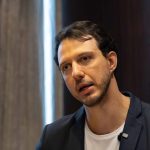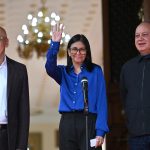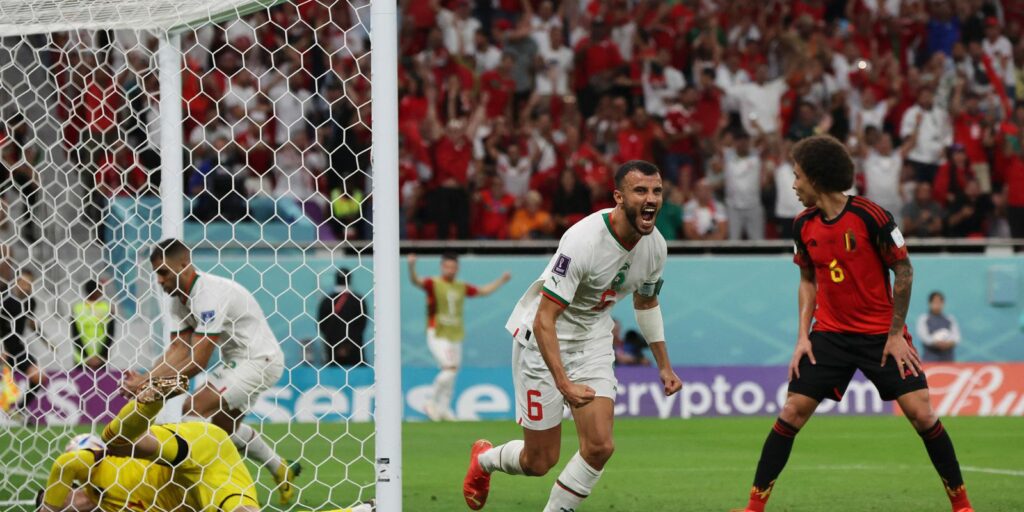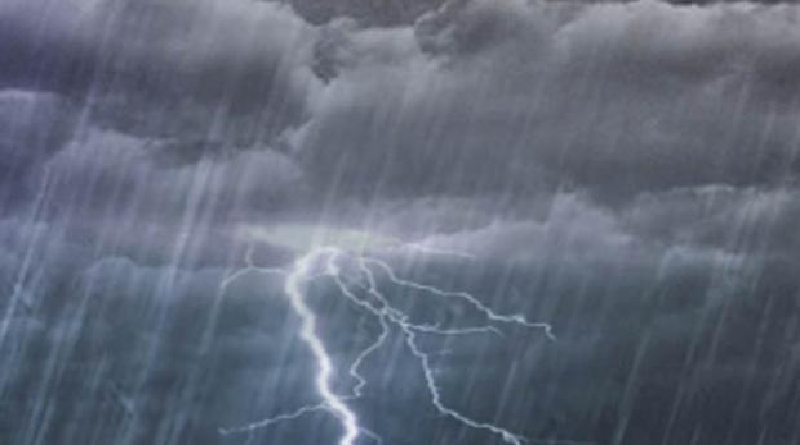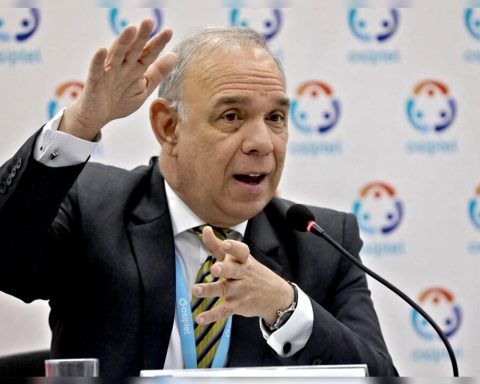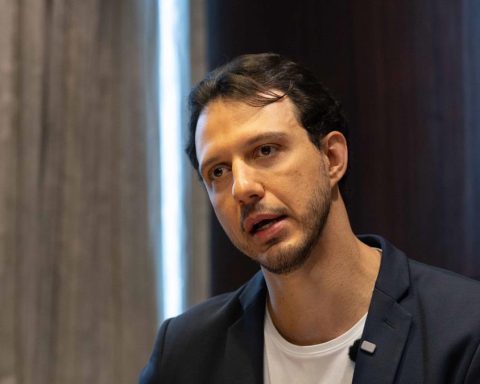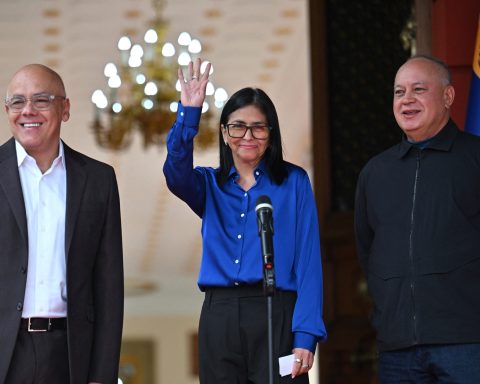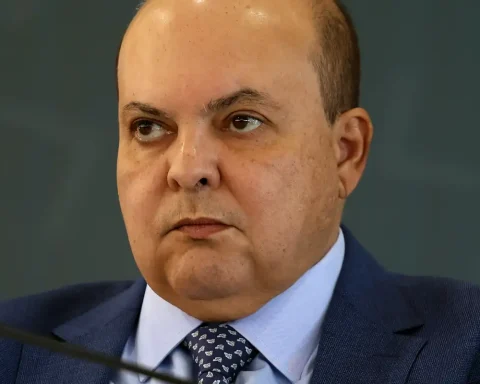Vice President Cristina Fernández de Kirchner will have the opportunity next Tuesday at 9:30 a.m. to address the Court for the last time that is judging her, along with 12 other defendants, for alleged crimes with the award of public works in Santa Cruz between 2003 and 2015.
Tuesday’s will be the second day dedicated to the final words ordered by the Federal Oral Court (TOF) 2 in the schedule prior to announcing its verdict, whose date should also be announced that day.
The Vice President will connect to the audience remotely through the Zoom platform and, at that moment, you will be asked if you wish to present your latest appreciations before judges Jorge Gorini, Rodrigo Giménez Uriburu and Andrés Basso.
The last words are a right of the defendants in oral trials and they can choose not to use them.
Since the debate began, more than three and a half years ago, the former president spoke twice before the judges: in her investigative statement on December 2, 2019, when the debate was still in person, prior to the Covid 19 pandemic; and then at the pleadings stage, when she used the right to exercise her own defense as a lawyer.
“This trial is also part of the lawfare, this was a plan devised by the outgoing government,” he said in his inquiry in December 2019 and assured that “this is how this outgoing government came to the government, with the invaluable help of the judicial apparatus,” he said in relation to the presidency of Mauricio Macri.
“This trial is also part of the lawfare, this was a plan devised by the outgoing government”
The trial “is based on the hypothesis that Néstor Kirchner was president to set up an illegal association with a construction businessman who was his friend from Río Gallegos, to come and loot the state coffers,” he said at the time, describing it as “a shame” to the accusation.
On the second occasion, on September 23, the Vice President and President of the Senate spoke to the Court virtually from her office at the parliamentary headquarters as part of the final argument of her defense and because of her status as a lawyer.
Fernandez de Kirchner said that Prosecutors Diego Luciani and Sergio Mola, who asked to sentence her to 12 years in prison, committed “a clear case of malfeasance”.
“The prosecutors’ accusation violates the Constitution” because “a government elected by the people cannot be considered an illegal association,” he argued in the plea, in which his defense attorney Carlos Beraldi demanded acquittal.
assassination attempt
The Vice President addressed the Court after having been the victim of an attempted murder on September 1 when she was returning to her apartment in the Recoleta neighborhood of Buenos Aires.
The night of that day, the now detained Fernando Sabag Montiel fired a gun at Fernández de Kirchner but the bullet did not come out, a short distance from the former president and in the middle of one of the demonstrations of support that were taking place in those days after the accusation. against him by the prosecution in this trial.
For next Tuesday, it was arranged that the former Santa Cruz Highway official Héctor Garro, the former Federal Planning official Carlos Kirchner and the former Secretary of Public Works José López also have the opportunity to express their final words.
The Court must then set a date to give the last four defendants the opportunity to speak, and based on that decision it will be known when it will pronounce its verdict, which must be issued on the same day that the last of them speaks.
They are the ex-responsible for Provincial Highway Administration in Santa Cruz Raúl Pavesi, José Santibañez and Juan Carlos Villafañe, and the former head of the National Directorate of Highway Administration in Kirchnerism, Nelson Periotti.
In the last hearing on Friday the 25th, the former Minister of Planning Julio De Vido said his last words; the owner of “Austral Construcciones”, Lázaro Báez; the former official Abel Fatala and the former manager of the 23rd district of National Highway in Santa Cruz Raúl Daruich.
They demand acquittal for non-existence of crime
The trial for the alleged directing of public works in Santa Cruz between 2003 and 2015 in favor of Báez companies began in May 2019 in the federal courts of Retiro, was interrupted for six months by the pandemic and resumed virtually in August of 2020, without ever recovering full face-to-face.
Throughout the more than three years of the trial, the court heard 114 witnesses in 117 hearings.
In relation to the verdict, it is expected that it will also be announced in a virtual hearing, unless one of the parties requests to be present in the Retirement courts for that moment.
The defenses of all the defendants demanded the acquittal for the non-existence of a crime.
The prosecutors requested that the former president be sentenced to 12 years in prison as the alleged head of an illicit association and fraudulent administration.
For Báez, the prosecutor’s office also claimed 12 years in prison as the alleged perpetrator of aggravated illicit association due to his capacity as organizer and primary participant in aggravated fraudulent administration.
In addition, they requested ten years in prison for De Vido and Periotti, and six years for Collareda and Villafañe.
It took five years for Daruich and Pavesi and four years for Fatala and Santibáñez.
As for Carlos Kirchner, the two prosecutors postulated his acquittal for illicit association and a two-year suspended sentence for abuse of authority.
